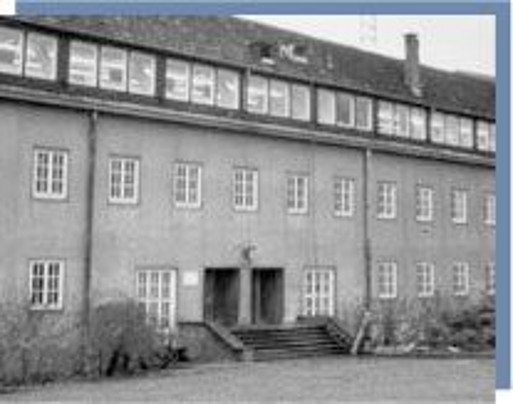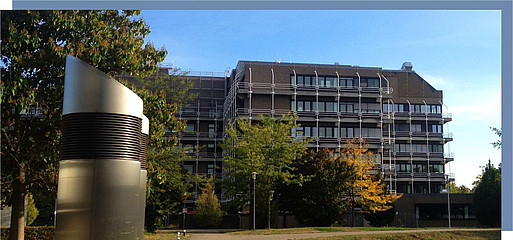The Institute


Since April 2010, the Institute of Pathobiochemistry has been established as an independent institute of the University Medical Center of the Johannes Gutenberg University Mainz. From 1989 until 2010 it was part of the Institute of Physiological Chemistry and Pathobiochemistry. The chair for Pathobiochemistry has been held by Prof. Dr. Christian Behl since the year 2002; his predecessors were Prof. Dr. Werner Müller-Esterl (1989 to 1999) and Prof. Dr. Karlheinz Bässler (1971 to 1989).
Currently, there are two more professorships affiliated with the institute, which are held by Prof. Dr. Claus Pietrzik (since 2003) and Prof. Dr. Bernd Moosmann (since 2010). The common research interest of the scientist at the Institute of Pathobiochemistry is directed towards the understanding of the pathogenesis and progression of age-associated neurodegenerative disorders and, moreover, towards the development of new strategies for prevention and therapy.
Currently, there are two more professorships affiliated with the institute, which are held by Prof. Dr. Claus Pietrzik (since 2003) and Prof. Dr. Bernd Moosmann (since 2010). The common research interest of the scientist at the Institute of Pathobiochemistry is directed towards the understanding of the pathogenesis and progression of age-associated neurodegenerative disorders and, moreover, towards the development of new strategies for prevention and therapy.

“The Autophagy Lab” led by Christian Behl investigates the cellular and molecular mechanisms underlying aging, neurodegeneration, and neuroprotection. In this context, the group focuses on the key aspects of cellular proteostasis and, in particular, the pathway of selective autophagy. Further, the researchers concentrate on adaptation processes cells employ to counteract different forms of cellular stress. Claus Pietrzik's group "Molecular Neurodegeneration" investigates biochemical processes that account for the onset and progression of Alzheimer‘s Disease (AD). Currently the focus is on possible new avenues for AD therapy.
An alternative approach to decode basic biochemical mechanisms relevant for neurodegenerative disorders and aging is pursued by the Bernd Moosmann's group "Evolutionary Biochemistry and Redox Medicine" analyzing the evolution of these mechanisms.
The Institute of Pathobiochemistry resides within the Biomedical Research Center (BFZ) located on the university campus. Due to its research profile it is integrated in the Focus Program Translational Neurosciences (FTN) of the Johannes Gutenberg University Mainz that bundles basic and clinical research efforts in the field. The broad range of clinical neuroscientific departments at the University Medical Center provides the ideal basis for interdisciplinary approaches and collaborations, facilitating the rapid translation of research from bench to bedside. Further, the Institute of Pathobiochemistry closely cooperates with the Faculty of Biology, in particular with the Institute of Developmental Biology and Neurobiology and the Institute of Molecular Physiology, and with the Institute of Molecular Biology (IMB).
An alternative approach to decode basic biochemical mechanisms relevant for neurodegenerative disorders and aging is pursued by the Bernd Moosmann's group "Evolutionary Biochemistry and Redox Medicine" analyzing the evolution of these mechanisms.
The Institute of Pathobiochemistry resides within the Biomedical Research Center (BFZ) located on the university campus. Due to its research profile it is integrated in the Focus Program Translational Neurosciences (FTN) of the Johannes Gutenberg University Mainz that bundles basic and clinical research efforts in the field. The broad range of clinical neuroscientific departments at the University Medical Center provides the ideal basis for interdisciplinary approaches and collaborations, facilitating the rapid translation of research from bench to bedside. Further, the Institute of Pathobiochemistry closely cooperates with the Faculty of Biology, in particular with the Institute of Developmental Biology and Neurobiology and the Institute of Molecular Physiology, and with the Institute of Molecular Biology (IMB).